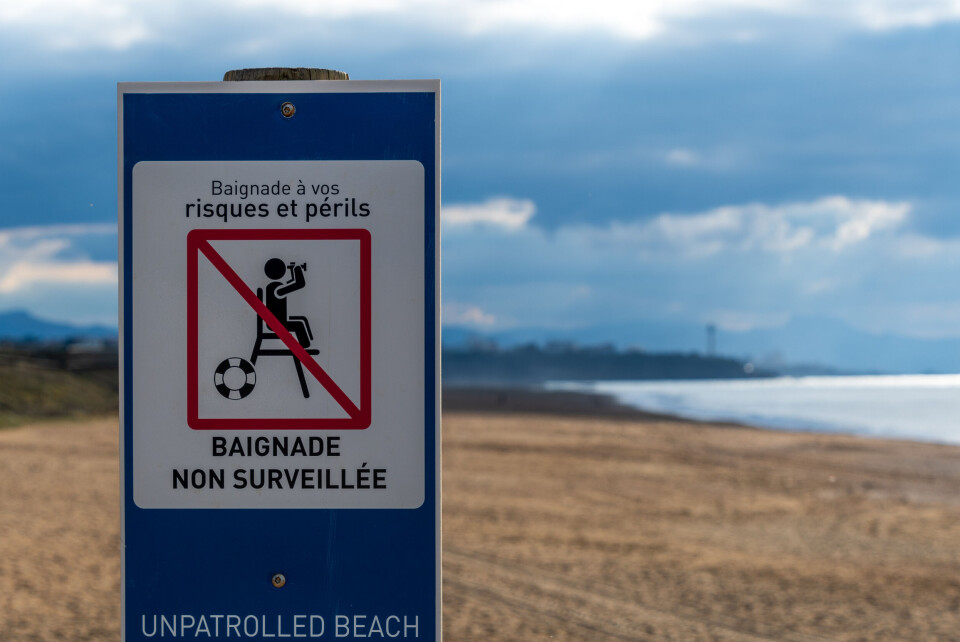-
Roadside noise cameras await approval to start issuing fines for loud vehicles in France
The devices known as meduses already exist in several cities but so far have only been ‘instructional’
-
White storks make strong return in France via nest ‘platforms’ and clipped wings
The Ligue pour la Protection des Oiseaux shares the conservation challenges in saving these birds from extinction
-
Hosting scheme in south-west France lets newcomers sample lifestyle
Households in nine Dordogne communes volunteer under Mes Nouveaux Voisins scheme
British man drowns after being caught in riptide in south-west France
Local authorities have urged swimmers to ‘exercise extreme caution’ in the Atlantic Ocean

A British man died on Sunday (June 18) morning in Biscarrosse, Landes, after being caught in a riptide in the Atlantic Ocean.
Rescue teams were scrambled just after 9:00 on Sunday after being notified of a swimmer being swept away from the shore.
Despite the best efforts of rescuers, the man was pronounced dead just after midday.
A four-year-old is also in critical condition after almost drowning in Biscarrosse’s lake, leading safety officials to urge holidaymakers to remember the danger of swimming.
Local prefectures have asked all swimmers to “exercise extreme caution,” when swimming in the Atlantic Ocean, and asked people to stick to “regulated areas supervised by lifeguards”.
Helicopter scrambled for rescue
The swimmer – a British man in his early twenties – was swept away by a riptide on Sunday morning, whilst swimming in the Atlantic Ocean in Biscarrosse.
Local rescue teams under the Centre Régional Opérationnel de Surveillance et de Sauvetage (CROSS) were scrambled. They directed a paddle and jet ski patrol to the swimmer’s last known location.
They also called in a helicopter and diver from nearby Cazaux to assist in the search. The swimmer was found and brought back to the shore. Medical teams tried to resuscitate the Briton but he was pronounced dead at 12:15.
At around 16:00 on the same day, rescuers were again scrambled to Biscarrosse – this time to the area’s lake – after a four-year-old almost drowned near the Navarrosse campsite.
He was already suffering from a cardiac arrest (heart attack) when emergency services arrived and was airlifted to a hospital in Bordeaux.
How do I avoid riptides?
Maritime authorities issued a statement after the two incidents on Sunday, reminding holiday goers of the dangers of swimming in the Atlantic Ocean.
They urged people to stick to approved sections of the coast when swimming, where lifeguards and rescue services are more able to help those in need.
In particular, swimming in the Atlantic is dangerous because of the sudden emergence of riptides.
Riptides – called baïnes in French – are prominent on France’s Atlantic coast, where seemingly calm water between beaches and sandbanks can suddenly be filled with a strong current, dragging people further out to sea.
If caught in a riptide, the main advice is not to swim against the current (i.e, to try to go back to shore), but to conserve energy until the waters calm, and then swim parallel to the shore until out of the riptide, before swimming back to the beach diagonally.
You can find a full list of advice on what to do when caught in a riptide in our article here.
Related articles
Danger of hidden currents for sea swimmers in southwest France
These have been ranked France’s most environmentally friendly beaches
























